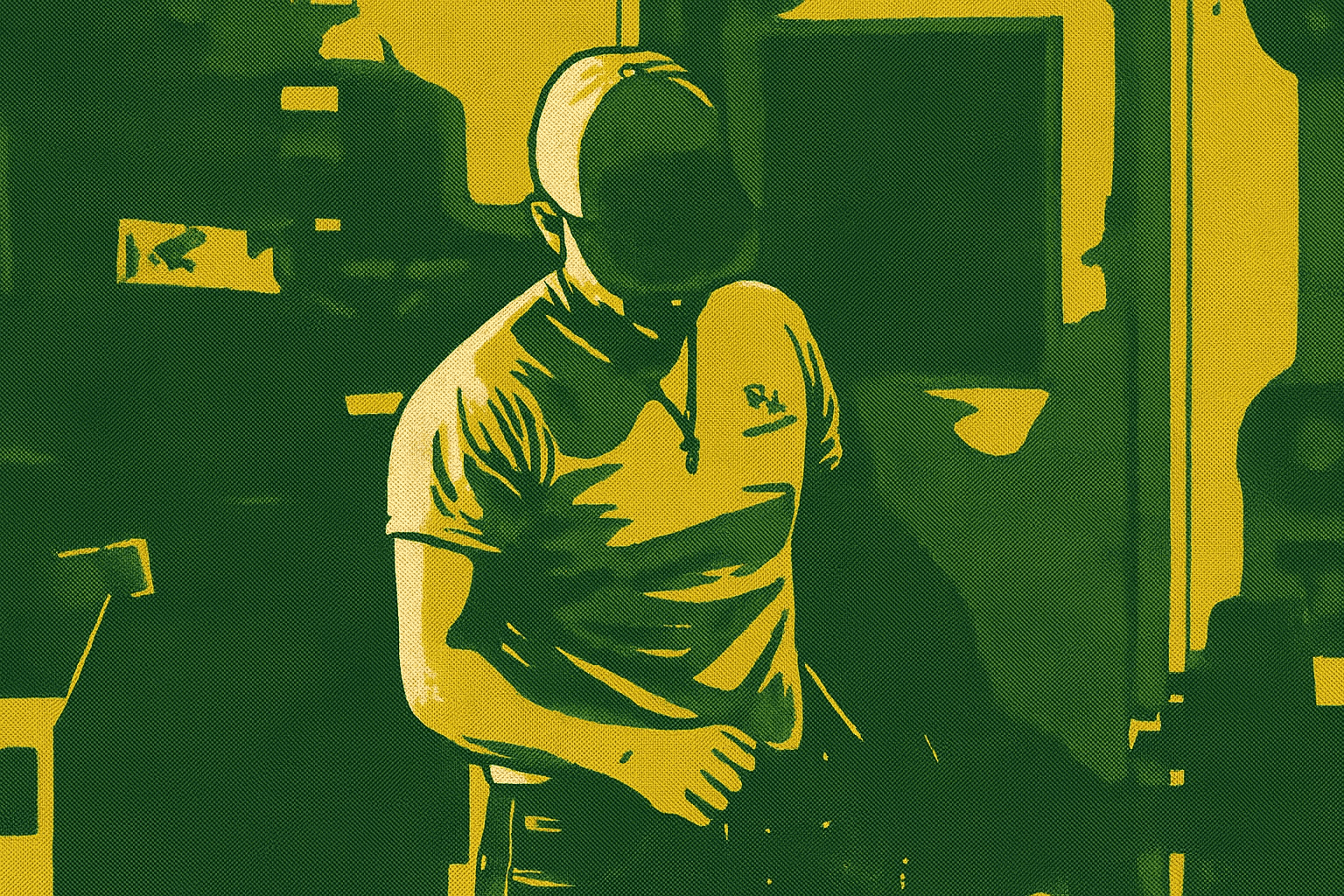Your gear will fail and your plan will fall apart. Batteries die. Networks vanish. Bags get grabbed. And if you’ve built your entire strategy just on tools and your plan, you’re screwed the moment they stop working. If your whole game falls apart the second the plan breaks, you never had a plan. You had a fantasy.
Adaptation is a muscle and most people never train it.
Systems Fail. You Can’t.
We’ve all done it.
Built the “perfect” setup.
Password manager, Faraday bag, secure OS, encrypted backup.
Layer on layer of control.
Then a charger gets lost. A key won’t boot. You hit the road and realize your threat model doesn’t work without Wi-Fi.
That’s when it hits. You’ve built a fortress with no exits.
Adaptation isn’t about fallback tools. It’s about fallback thinking. It’s the difference between owning gear and knowing what to do when it’s gone.
That’s why you don’t just train with gear, you train without it. You train with what’s at hand.
The False Security of Tools
Every Faraday sleeve, encrypted messeging app, and burner device feels like armor, but armor rusts. The truth is simple: tools are multipliers, not guarantees. They give you reach, but they also create dependency. The moment you lean on them too hard, you’re exposed.
Most privacy people stockpile apps like preppers hoard canned beans.
That’s not resilience. That’s ritualized dependence.
Adaptation comes from exposure. From controlled failure.
From pushing your system until it breaks and staying calm when it does.
I’ve been there. Caught out with no charger. No cell tower signal. Laptop useless because the security key was back home. All the expensive prep in the world doesn’t help if you can’t adapt on the fly.
Core Rule: Stay Moving
Improvisation starts with mindset, not inventory. If the plan collapses, you don’t stop. You pivot. Every street corner, coffee shop, and 7-11 is a potential resource. You build from the environment instead of freezing in panic.
Improvise with What’s Around You
Here’s how you turn a breakdown into opportunity:
- No comms? Paper and pen beat silence, leave a note, mail a letter. Need to call? See if a front desk in a hotel or gas station will let you use their phone. Ask to make a local call. Offer cash. Get creative.
- No internet? Use a computer in the public library. Use a hotel business centers. Walk in like you belong and act like you’re printing a boarding pass. Even random smart devices on display in retail stores leak signals. Ride their infrastructure to get a message out.
- No encryption device? Encrypt with your head. Strip details. Speak in layers. Use codes only you and your contact know. Half a sentence can carry the whole payload if you’ve rehearsed.
Training Without the Safety Net
The trick is running drills. Try a day without your stack. No phone, laptop, smart watch, security keys, and debit card. Force yourself to navigate a city without maps. How do you contact your friends without your signal app on your phone? Train until the lack of gear feels less like panic and more like muscle memory. Adaptation is a skillset. Build it.
This is the drill:
- One day a week, go out with no phone and debit card.
- Try navigating with printed maps or by asking strangers.
- Use only cash.
- Contact a friend without your personal phone.
- Practice explaining something sensitive with no tech, no text, and no trace.
You’ll screw it up. I’ve failed these drills. Got lost. That’s the point.
Every failure is a lesson and every lesson builds cognitive routes that don’t rely on code.
Burn New Neural Paths
Adaptation is neurological. It’s pattern breaking.
You have to force your brain off autopilot.
- Always walk the same street? Take a different one.
- Always write at the same desk? Change location.
- Always message a friend the same way? Use a voice call.
This isn’t about being unpredictable for paranoia’s sake. It’s about being versatile.
The more ways you know how to move, the harder you are to trap.
The Quiet Advantage
Surveillance systems are built on patterns and predictability. They map habits, patterns, routines. They model you. Improvisation breaks those models. When you can pivot fast, you become harder to pin. You slip off the model they’ve built for you.
- You swap routines.
- You shift timing.
- You communicate irregularly.
- You use unfamiliar infrastructure.
Suddenly you’re not predictable.
You’re not traceable.
You’re not modelable.
That’s the real weapon.
One Task This Week
Pick one day. Strip your gear. Run a drill.
Try to complete one normal task, completely analog.
- Message someone without a phone.
- Navigate without apps.
- Buy something without using your real name.
Then write down what broke. That’s your training plan.
Stop worshiping the gear. Respect it, but don’t depend on it. Spend one day this week running light with no devices, no safety net. See what you can improvise from the street, from strangers, from scraps. That’s the real test.
Adaptation is the skill they can’t model.
They can steal your tools.
They can’t steal your mindset.
Not perfect. Just better.
Claw it back.
-GHOST
Written by GHOST, creator of the Untraceable Digital Dissident project.
This is part of the Untraceable Digital Dissident series — tactical privacy for creators and rebels.
Explore more privacy tactics at untraceabledigitaldissident.com.
